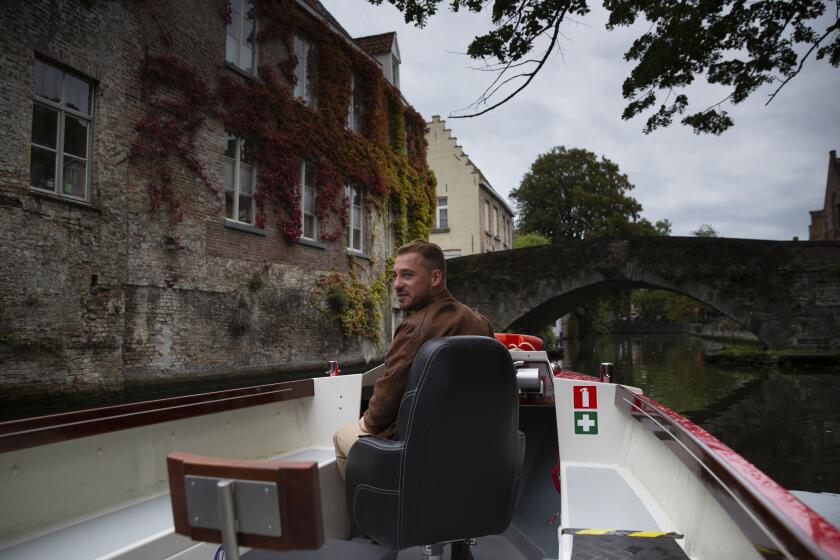The European Union is finalizing plans to allow U.S. tourists back this summer

- Share via
BRUSSELS — The European Union is finalizing plans to allow tourists from the United States to travel to the 27-nation bloc this summer, officials said Monday.
More than a year after the EU restricted travel to the region to a bare minimum in a bid to contain the coronavirus, the European Commission said it would make a recommendation to member states to allow American travelers back.
The commission didn’t say when exactly tourists would be allowed back inside the bloc, or whether a reciprocal approach would apply to European tourists willing to travel to the U.S.
European Commission spokesman Adalbert Jahnz told reporters that the EU’s executive body is hoping to restore nonessential “trans-Atlantic travel as soon as it is safe to do so.”
It wasn’t immediately clear whether the EU would require full vaccination against COVID-19 for Americans to enter, or whether a negative PCR test or proof of recent recovery from COVID-19 could be presented as well.
“These are among the questions we’ll still need to figure out,” Jahnz said. “The proposal is not yet made. For now, we have nothing more to go by than what the [European Commission] president said.”
Europe’s leanest summer tourist season in recent history is drawing to a close, six months after the coronavirus hit the continent hard.
On Sunday, the New York Times published an interview with European Commission President Ursula von der Leyen, who suggested that fully vaccinated Americans would be able to visit EU countries this summer since all COVID-19 vaccines currently used in the U.S. have also been approved by Europe’s drug regulator. But the report didn’t mention whether she was asked whether Americans could also provide a negative PCR test or evidence of having recovered from COVID-19.
“The Americans, as far as I can see, use European Medicines Agency-approved vaccines,” Von der Leyen said in the interview. “This will enable free movement and the travel to the European Union. Because one thing is clear: All 27 member states will accept, unconditionally, all those who are vaccinated with vaccines that are approved by EMA,” the European Medicines Agency.
Jahnz insisted that the return of American tourists to EU nations would depend on the epidemiological situation in both the U.S. and within the bloc.
The European Union is putting the finishing touches on a system of certificates that would allow EU residents to travel freely across the region by the summer as long as they have been vaccinated, tested negative for COVID-19 or recovered from the disease. Under the plan discussed with their U.S. counterparts, American tourists could be included in the program.
The State Department is urging Americans not to travel to most places overseas because of the risks from the COVID-19 pandemic.
With more than 15 million Americans estimated to travel to Europe annually before the crisis, the recommendation from the commission is manna from heaven for the heavily hit European tourism sector. But individual EU member states will have the final say on whether to implement the guidelines.
The commission said other countries have made similar requests but didn’t name them. Asked whether negotiations with Britain were ongoing, European Commission spokesman Christian Wigand said “no contact to this end” has been made.
Travel to the EU is currently extremely limited except for a handful of countries with low infection rates, including Australia and New Zealand. But Greece, which is heavily reliant on tourism, has already lifted quarantine restrictions for visitors from the U.S., Britain, the United Arab Emirates, Serbia, Israel, and non-EU members Iceland, Liechtenstein, Norway and Switzerland, which are part of a European travel pact. Travelers from those countries will no longer be subject to a seven-day quarantine requirement if they hold a vaccination certificate or negative PCR test.
“Uniliteral approaches, from our perspective, should be avoided,” Jahnz said. “The objective is to continue to have a coordinated approach on the European level.”
More to Read
Sign up for Essential California
The most important California stories and recommendations in your inbox every morning.
You may occasionally receive promotional content from the Los Angeles Times.















